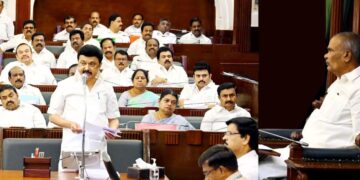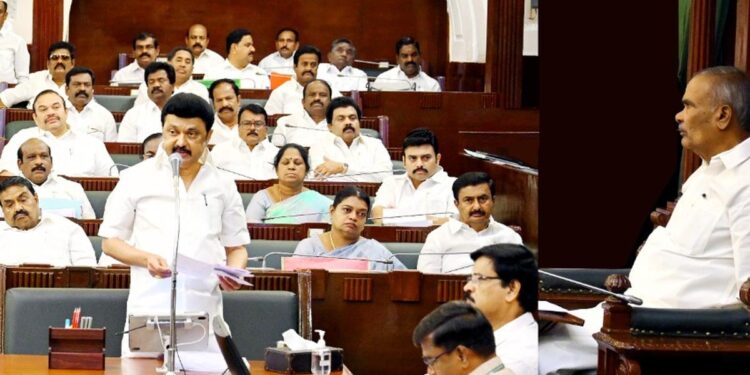Tamil Nadu’s long-standing struggle for exemption from the National Entrance and Eligibility Test (NEET) suffered a significant setback on Friday when President Droupadi Murmu rejected a bill that sought to exempt the state from the test and allow the use of Class XII marks for medical admissions instead.
Chief Minister MK Stalin informed the state Assembly of the rejection of the bill, which had been passed twice by the state legislature, once in 2021 and again in 2022. The bill had been pending approval from the Union government for some time.
Last year, in June, the Tamil Nadu Assembly passed a resolution urging the central government to abolish NEET and allow states to decide on admission criteria based on school marks. This move garnered unanimous support from the Assembly.
In response to the rejection, Stalin expressed his disappointment and frustration. The Chief Minister, who has had ongoing tensions with the BJP-led Union government on issues like delimitation and the alleged “Hindi imposition,” described the rejection as an “insult” to Tamil Nadu and lamented the “black phase in federalism.”
“Despite Tamil Nadu providing all necessary clarifications, the Union government has rejected our request for exemption from NEET,” Stalin said in the Assembly. He also called for a meeting of all legislative parties to decide on the next steps. The state government is determined to continue its fight for NEET exemption, with plans for a meeting of all Members of the Legislative Assembly (MLAs) set for April 9, according to sources.
Stalin added, “Though the Union government may have rejected Tamil Nadu’s request, our fight is far from over. We will consult legal experts to explore lawful measures we can take to challenge this decision.”
The NEET exemption issue in Tamil Nadu is part of a broader and long-standing challenge against the exam. The state’s primary concern is that NEET disproportionately benefits wealthier students, who can afford expensive coaching and preparation for the entrance test. By using Class 12 marks instead, the state argues that it would promote social justice and provide equal opportunities for all students.
The controversy surrounding NEET has also been marked by tragic incidents, including suicides among students who were unable to pass the exam, and the leakage of exam papers. For instance, in 2024, the Supreme Court dismissed petitions seeking a re-test of the NEET-UG exam after claims of a paper leak just before the exam began. The Court upheld the sanctity of the exam, despite the allegations.
Tamil Nadu is not the only state protesting against NEET. Last year, West Bengal joined the opposition, passing a resolution against the test. Bengal’s Education Minister, Bratya Basu, stated that the state had always opposed an all-India entrance exam. Other prominent political figures, such as Congress leader Rahul Gandhi and Tejashwi Yadav of the Rashtriya Janata Dal in Bihar, have also voiced their opposition to the NEET system.
The rejection of the NEET exemption bill is a significant blow to Tamil Nadu’s battle for educational reform, but the state remains determined to continue its efforts to change the system.
Also Read: PM Modi Meets Bangladesh’s M Yunus for the First Time Since Regime Change















 Categories
Categories









